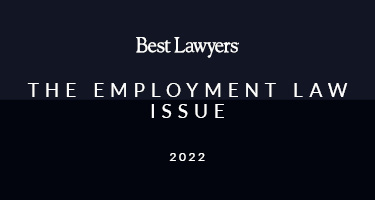There are many different types of human resources (HR) audits. An audit can be as simple as reviewing employment files to ensure that they are in order or it can involve reviewing effectiveness of corporate HR policies, which may include interviewing supervisors, managers and employees. Audits can be broad, incorporating how a business operates and reviewing efficiencies. They can include a review of a company’s formal and informal systems and procedures to determine whether they meet current and projected future needs. An audit can tell a company where it is with legal compliance and what needs to be done to manage human resources risk. Audits can and should be tailored to an organization’s needs and resources. While comprehensive audits offer the maximum protection, focused and tailored audits can also be beneficial, as they can identify potential problems and lead to the institution of timely corrective measures.
At a minimum, an HR audit can be useful in making sure that a company is aware of the laws it must comply with, and has policies in place to do so. Outlined below are some important laws for which a company should ensure compliance.
Federal Laws
Fair Labor Standards Act (FLSA)—governs minimum wage, overtime, child labor laws and record-keeping requirements.
Family and Medical Leave Act (FMLA)—provides covered employees with up to 12 weeks of unpaid, job protected leave to care for a new or sick child, spouse or parent with a "serious medical condition."
Title VII—prohibits discrimination on the basis of race, color, religion, sex or national origin.
Americans with Disabilities Act (ADA)—prohibits discrimination against qualified persons with disabilities and requires employers to make reasonable accommodations (unless unduly burdensome).
Age Discrimination in Employment Act (ADEA)—prohibits discrimination against persons over 40 years old.
Pregnancy Discrimination Act (PDA)—prohibits discrimination on the basis of pregnancy, childbirth and related medical conditions.
Genetic Information Nondiscrimination Act (GINA)—prohibits discrimination of employees or applicants because of genetic information.
Affordable Care Act (ACA)—requires covered employers to provide access to health care benefits to employees.
Uniformed Services Employment and Reemployment Rights Act (USERRA)—prohibits discrimination against employees who volunteer or are called to military duty and requires reemployment of returning soldiers to their old or equal jobs.
Occupational Safety and Health Act (OSHA)—sets employment safety and health standards.
National Labor Relations Act (NLRA)—guarantees the right of employees to organize, bargain and engage in "protected concerted activity."
Health Insurance Portability and Accountability Act (HIPAA)—provides rules for protecting the confidentiality of private health information.
Immigration Reform and Control Act (IRCA)—prohibits hiring of individuals without legal authority to work in the United States, sets requirements for verification of eligibility to work and documentation requirements.
Employee Retirement Income Security Act (ERISA)—sets minimum standards for most voluntarily established pension and health plans in private industry to provide protection for individuals in these plans.
Consolidated Omnibus Budget Reconciliation Act (COBRA)—provides continued insurance coverage for employees after termination of employment and requires employers to provide certain notices to employees upon termination.
Employee Polygraph Protection Act (EPPA)—prevents employers from using polygraph tests in pre-employment screening or during the course of employment, with some exceptions.
Consumer Credit Protection Act (CCPA)—federal law governing wage garnishment.
Fair Credit Reporting Act (FCRA)—governs how pre-employment background checks are to be conducted and what notifications need to be given to applicants. Laws and regulations specific to your industry (i.e. Department of Transportation).
State and Local Laws
Many states have "copycat" Equal Employment Opportunity laws, but they are not always identical. Some cover contractors, others recognize certain protected classes. Many municipalities have their own laws governing the workplace. These laws are often broader than the federal or state laws and provide additional rights and obligations to employers. It is critical for companies to understand the local laws affecting their business and ensure compliance through regular audits.
Government Agency Action
Additionally, several governmental agencies have become increasingly active in their review of employer's policies. Changes and points of emphasis from these agencies are acknowledged below.
National Labor Relations Board (NLRB)
In March 2014, the NLRB entered into an arrangement with the Occupational Safety and Health Administration (OSHA) whereby OSHA agreed to notify complainants who file untimely whistleblower claims of their right to file a charge with the NLRB, which employs longer statutes of limitation. In August, the NLRB issued a memorandum advising that its agents would reciprocate with OSHA and would engage in a similar practice with respect to wage and hour issues. The potential outcome is for employers to experience an increase in charges being filed. For employers who are proactive and regularly conduct compliance audits, the risk of agency referrals and/or resulting penalties can be greatly reduced.
There has been a flurry of activity by the NLRB attacking employer policies that the Board believes infringe upon employee rights guaranteed by Section 7 of the National Labor Relations Act. As a result of recent decisions rendered by the Board, employers should review their handbooks and work rules to determine if revisions are required. Language that has been historically viewed as permissible and compliant with the Act is now being struck down.
Equal Employment Opportunity Commission (EEOC)
Harassment Taskforce—On January 14, 2015, the new EEOC Chair, Jenny R. Yang, announced the establishment of a task force to develop strategies to prevent and correct harassment.
Pregnancy Discrimination—The EEOC's Guidance on Pregnancy Discrimination makes clear that while pregnancy is NOT a disability, pregnancy related impairments would qualify an individual to protections under the ADA Amendments Act.
Increased Scrutiny of Wellness Programs—The EEOC continues its focus on employer wellness programs, issuing proposed regulations on the interplay between these programs, the Affordable Care Act (ACA) and anti-discrimination laws such as the Americans with Disabilities Act (ADA) and Genetic Information Nondiscrimination Act (GINA). The EEOC has also filed several lawsuits challenging employer wellness programs.
Department of Labor (DOL)
New Overtime Regulations—On May 18, 2016 the DOL, Wage and Hour Division issued its Final Rule regarding the “white-collar” exemptions to minimum wage and overtime requirements imposed by the federal Fair Labor Standards Act (FLSA). The Final Rule takes effect December 1, 2016. Read our alert on this topic here.
Revised definition of spouse under the FLMA—In light of the United States Supreme Court's decision in United States v. Windsor, a new regulatory definition of "spouse" went into effect on March 27, 2015, expanding the definition to include legal same-sex marriages. Read our Tax and Estates alert on this case here.
Increased Fair Labor Standards Act (FLSA) litigation—FLSA lawsuits in federal courts were up another 5% in 2014 from 2013 and are up 438% since 2000—and that doesn't count the increases in state litigation. It is expected this trend will continue.
Increased DOL attention to misclassification (employee/contractor).
Increased Family Medical Leave Act (FMLA) investigations and focus on systemic FMLA compliance issues.
Internal Revenue Service (IRS)—The IRS has made clear that it will increase scrutiny of worker classification in an effort to ensure that those workers who are employees and should be having payroll taxes deducted from their checks and paid by their employers are not improperly classified as independent contractors.
Office of Federal Contract Compliance Programs (OFCCP)—The last several months and years have seen a remarkable increase in the requirements for businesses who work with or sell to the federal government.
For additional information or guidance on ensuring compliance with these laws and regulations, please contact Debbie Sandler (sandlerd@whiteandwilliams.com; 215.864.6203), George Morrison (morrisong@whiteandwilliams.com; 610.782.4911) or another member of our Labor and Employment Group.


























